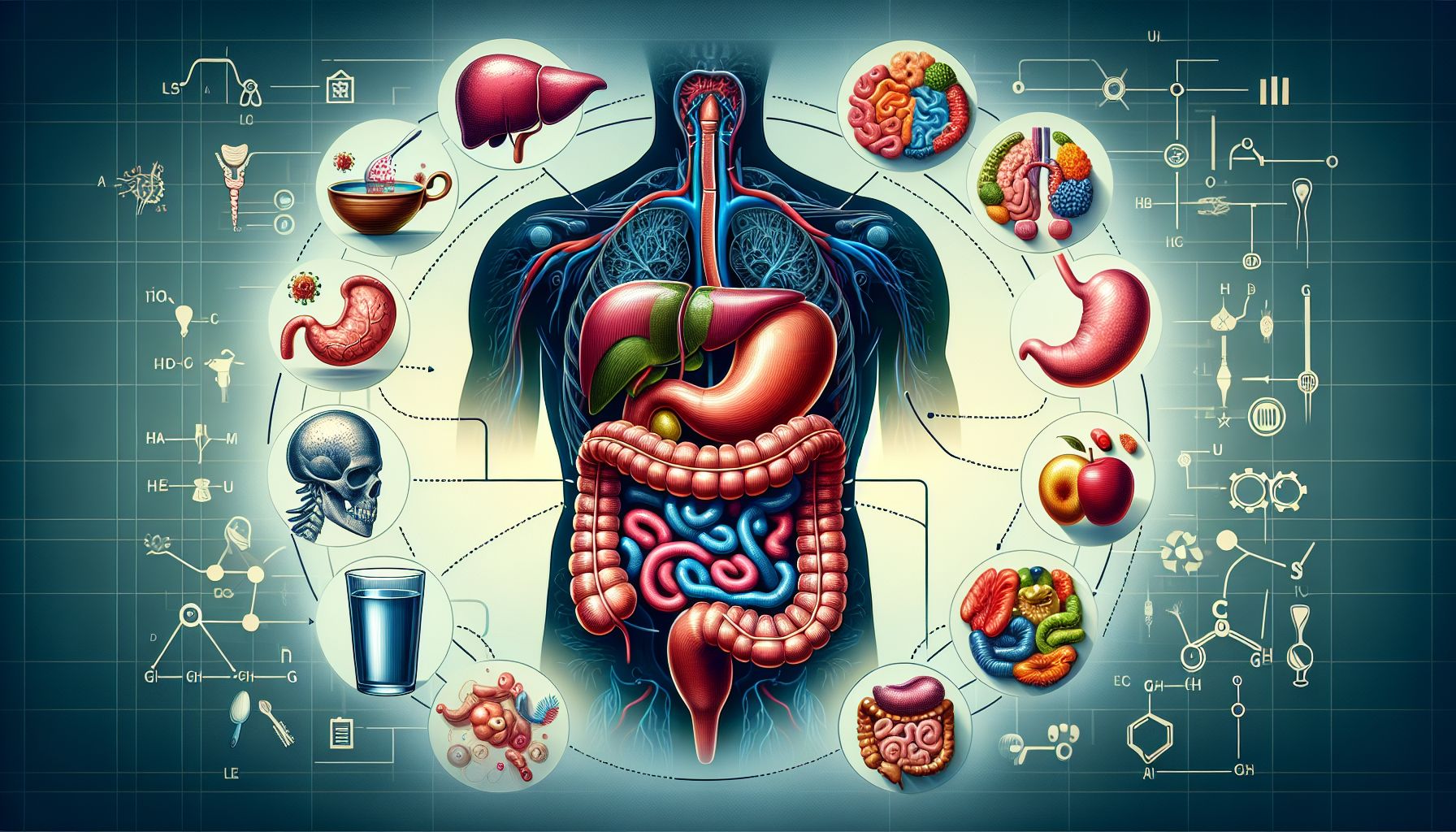
Understanding Gastrointestinal Health
The gastrointestinal (GI) system plays a crucial role in your overall health, acting as the body’s primary site for digestion and nutrient absorption. This complex system includes organs such as the stomach, intestines, liver, and pancreas, all working together to break down food and extract essential nutrients. In this article, we will explore the mechanisms of the GI system, common issues, and how to maintain optimal digestive health.
What is the Gastrointestinal System?
The gastrointestinal system, also known as the digestive system, is a series of hollow organs joined in a long, twisting tube from the mouth to the anus. It includes the mouth, esophagus, stomach, small intestine, large intestine, rectum, and anus. Its main functions are to digest food, absorb nutrients, and expel waste.
Mechanism of Action
The digestion process begins in the mouth, where food is chewed and mixed with saliva. It then travels down the esophagus to the stomach, where it is broken down by stomach acids. The small intestine continues the digestive process, assisted by enzymes from the pancreas and bile from the liver.
The small intestine is also the primary site for nutrient absorption. The large intestine absorbs water and forms waste products to be excreted. This complex system requires a delicate balance of enzymes, hormones, and bacteria to function effectively.
Common Gastrointestinal Issues
Digestive problems can significantly impact quality of life. Some common GI issues include:
– Gastroesophageal Reflux Disease (GERD): A chronic condition where stomach acid leaks into the esophagus, causing heartburn and irritation.
– Irritable Bowel Syndrome (IBS): A disorder characterized by abdominal pain and changes in bowel habits.
– Inflammatory Bowel Disease (IBD): Includes conditions such as Crohn’s disease and ulcerative colitis, which involve chronic inflammation of the GI tract.
– Celiac Disease: An autoimmune disorder where ingestion of gluten leads to damage in the small intestine.
Possible Side Effects of Gastrointestinal Medications
While medications can effectively manage GI conditions, they may have side effects. Common side effects include nausea, diarrhea, constipation, and abdominal pain. It is important to consult with a healthcare professional to manage these effects.
Maintaining Gastrointestinal Health
Maintaining a healthy digestive system involves a combination of dietary habits, lifestyle choices, and, when necessary, medical interventions. Here are some steps to optimize your GI health:
Diet and Nutrition
– High-Fiber Foods: Incorporate plenty of fruits, vegetables, whole grains, and legumes to promote regular bowel movements.
– Hydration: Drink plenty of water to aid in digestion and nutrient absorption.
– Probiotics: Consume foods rich in probiotics, such as yogurt and fermented foods, to support gut bacteria balance.
Lifestyle Changes
– Regular Exercise: Engage in regular physical activity to stimulate intestinal muscle contractions and improve digestion.
– Stress Management: Practice relaxation techniques such as yoga and meditation to reduce stress, which can negatively impact digestion.
Medical Interventions
In some cases, medical intervention may be necessary. Consult a healthcare professional for advice on medications, supplements, or therapies tailored to your needs.
Expert Opinions on Gastrointestinal Health
Dr. Emily Collins, a gastroenterologist, emphasizes the importance of listening to your body: «Recognizing the early signs of digestive distress can prevent minor issues from becoming serious problems. If you experience persistent symptoms, seek professional advice.»
Pharmacist John Michaels advises, «When using over-the-counter medications for GI issues, always follow the dosage instructions and consult with a healthcare provider if symptoms persist.»
Conclusion
Understanding the gastrointestinal system is essential for maintaining overall health and well-being. By following a balanced diet, adopting healthy lifestyle habits, and seeking medical guidance when necessary, you can optimize your digestive health. For more information on managing gastrointestinal health, visit our recommended site for expert resources and products: link_text.


